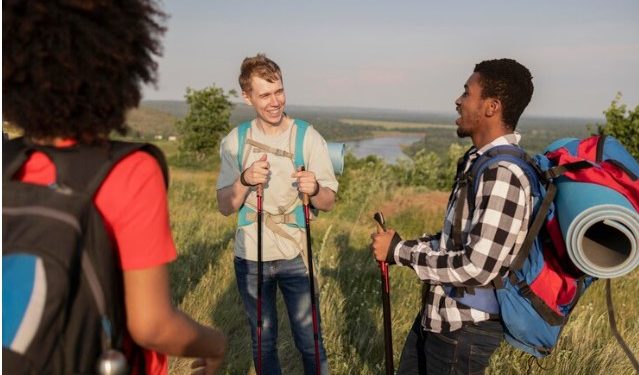Embarking on a mission trip to Uganda offers an enriching experience that blends service with cultural exchange. The landlocked country in East Africa opens up opportunities for travelers to engage with local communities, provide education, and gain meaningful insights into a diverse and vibrant culture. Preparation is crucial, from obtaining necessary travel documents to planning the logistics of the trip. Adequate preparation ensures that volunteers can make the most of their time in Uganda, fostering meaningful connections and contributing to community-driven projects.
While in Uganda, the breadth of experiences can range from improving infrastructure to providing healthcare and education services. It’s essential that travelers participate with sensitivity and respect toward local customs and practices. The educational component of a mission trip, for those involved, is two-fold: they have the opportunity to impart knowledge and also to learn from the resilience and ingenuity of the Ugandan people. The success of a mission trip lies in the ability to adapt and respond to the needs of the host community, ensuring that the effort put forth by volunteers has a lasting and positive impact.
Navigating the logistical challenges of international travel requires attention to detail, especially when coordinating group flights or securing humanitarian airfares. Volunteers also must ensure to have valid travel documents, and with the current delays, acting promptly to renew a passport is more important than ever.
Key Takeaways
- Preparation is key for a successful mission trip to Uganda, including securing travel documents and planning logistics.
- In Uganda, volunteers engage in a variety of services and learn about the local culture and customs.
- Post-trip, volunteers often continue to engage with their experiences, assessing the trip’s impact and maintaining connections.
Planning Your Mission Trip
Organizing a mission trip to Uganda involves careful consideration of costs, adherence to legal and health prerequisites, selection of an appropriate mission, and thorough pre-trip preparation to ensure a meaningful and safe experience.
Understanding the Costs
The financial aspect of mission trips can be significant. Prospective volunteers should be ready to cover costs associated with travel, accommodation, food, and any project-related expenses. Supporters often donate to help meet these financial needs, and it’s common for participants to engage in fundraising activities. To better understand the various costs and helpful financial strategies, the Step-by-Step Guide from i58 Global may provide valuable insights.
Legal and Health Requirements
Safety and health are paramount. Travelers need a valid passport and may require a specific type of visa. It is also essential to stay updated on required vaccinations, understand the safety conditions of the destination, and have adequate health insurance. It is beneficial to have a detailed checklist as found in this Trip Manual, which covers important travel and health documentation.
Choosing the Right Mission Trip
Selecting the right mission is a critical step. Factors to consider include the type of projects, the partner organizations’ reputations, and alignment with personal skills and goals. Whether focusing on education, leadership, or team building, matching personal capacities with the mission’s needs is key. Prospective volunteers should choose carefully and apply well in advance to secure a spot.
Pre-Trip Preparation
Preparation involves not only packing but also extensive cultural, emotional, and spiritual training. The required items can range from essentials to specific project materials. For packing tips and checklists, Go. Serve. Love provides practical advice. Additionally, grounding oneself in the cultural norms and language of Uganda significantly enhances the trip’s impact and effectiveness.
During the Mission Trip
Mission trips to Uganda are vibrant experiences filled with daily service and education efforts, community interactions, and attention to personal well-being.
Daily Life and Activities
Each day on a mission trip in Uganda starts early, often with a communal breakfast, where meals offer energy for the day’s service tasks. Missionaries typically engage in a range of activities such as teaching in local schools to enhance education, or contributing to construction projects that benefit villages and communities. The balance between labor and learning is crucial, ensuring both service and personal growth.
Community Engagement
Interaction with local communities is a cornerstone of the mission trip experience. Teams often spend time with orphans, widows, and other vulnerable groups, offering emotional support, health services, or merely a listening ear. These engagement efforts are not only acts of service but also vital cultural exchange opportunities that encourage mutual understanding and respect.
Ensuring Personal Well-Being
While serving, missionaries’ safety and health are priorities. They receive briefings on local health precautions, and their lodging is chosen with safety in mind. Team members must remain vigilant about their health, whether that involves ensuring safe travel to different sites or simply maintaining hydration and nutrition with safe, prepared meals. Wellness is essential to serve effectively and sustainably.
While on mission, the importance of planning and logistics cannot be understated, from pre-departure arrangements to details about local transportation. For support and guidance, missionaries often turn to resources that provide valuable information on preparation, such as travel checklists and advice on making the most of their mission experience.
Post-Trip Engagement and Impact
After returning from a mission trip to Uganda, the work does not end; it evolves, focusing on sharing experiences and continuing support to ensure long-term impact on both the communities served and the participants themselves.
Sharing Your Experience
Mission trip participants often return with transformative stories and insights. It is crucial to share these narratives to raise awareness, educate others, and foster a deeper understanding of the challenges faced by communities in Uganda. Individuals might choose to document their journey and the lives touched, providing a tangible connection to the cause and encouraging others to get involved or supporting similar projects.
Continued Support and Development
The end of a mission trip marks the beginning of ongoing support. Engaging in post-trip activities like fundraising for education or poverty alleviation can have significant effects on Ugandan families. Volunteers might continue their contribution by remotely participating in youth camps or education initiatives. The development of projects that empower vulnerable children or support community-building efforts showcases a continued commitment to the transformative work initiated in Africa. It’s vital to find reliable organizations that facilitate these connections, ensuring that the support provided aligns with the ongoing needs of local communities.















